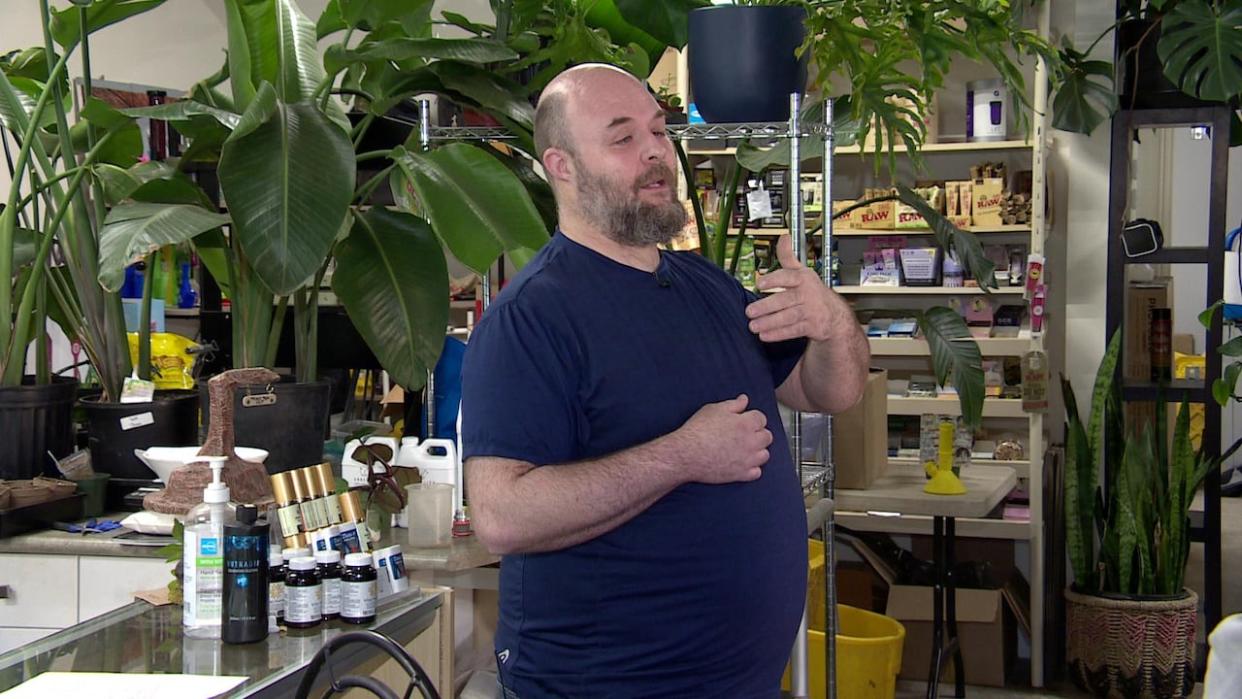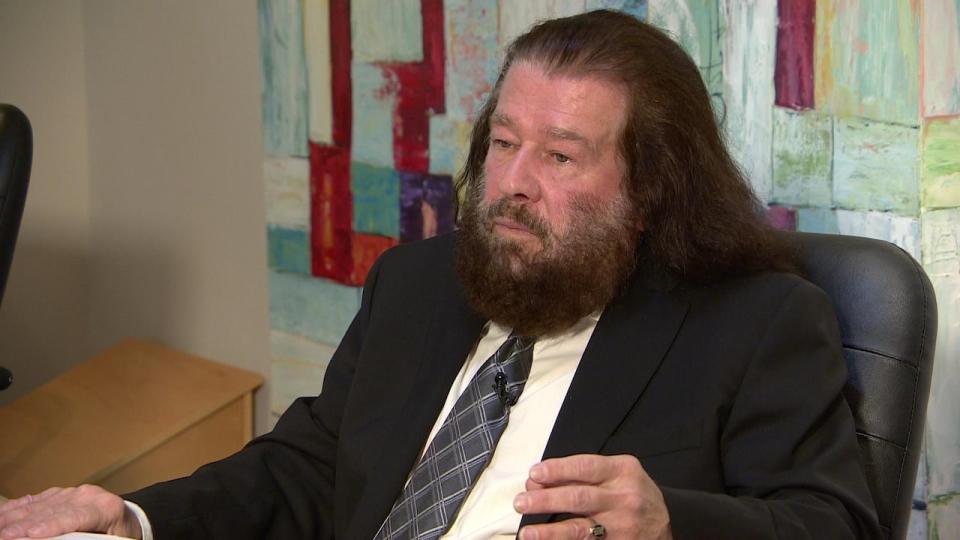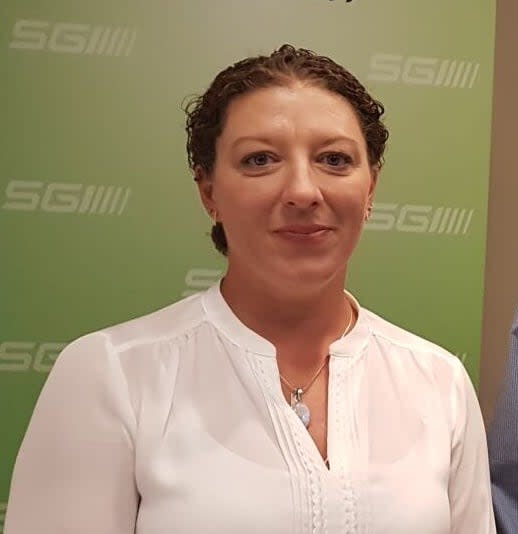Increase in Sask. drug-related roadside suspensions raises questions about pot laws and policing

Mike Bartlett survived a near-fatal crash with a semi-truck in 2016 and uses medical cannabis to manage severe, chronic pain that still lingers.
Bartlett owns a horticultural supply store in Saskatoon. He's got a prescription to use cannabis medically and a licence from Health Canada to grow it for others.
Bartlett says he's concerned that he's going to lose his truck and driver's licence because of the laws around cannabis and driving.
He's not alone. He co-administers a 322-member Facebook page, "Saskatchewan SGI cannabis victims," where users share their experiences.
Their online allegations range from police targeting customers at cannabis stores, to SGI using its zero tolerance policy as a crude cash grab, to failure of a roadside test not correlating with impairment.
Police say their roadside tests are designed to detect recent cannabis use, but scientific studies have given reason to question their effectiveness and found that THC could be detected in saliva for up to eight days after it was taken.
A veteran Saskatoon criminal defence lawyer says frequent cannabis users are correct to be concerned. Mark Brayford said he knows many cannabis users see the driving laws and application as unfair.
"If you're smoking pot four times a week, you're going to have to resign yourself that you can't legally drive a car. It's that simple," he said in an interview.
"There isn't a period of time that you can safely wait if you're going to be a frequent user."
At the same time, Brayford said frequent cannabis users who test positive on a roadside swab and only have their licence and vehicle taken away for three days should consider themselves lucky to not be facing criminal charges.
By the numbers
The number of Saskatchewan drivers caught behind the wheel with THC, the active ingredient in cannabis, in their system was 20 times higher last year than in 2019, according to Saskatchewan Government Insurance (SGI).
Parliament legalized the possession of cannabis in October 2018. It also introduced laws that created new criminal offences related to driving under the influence.
In 2019, the first full year of legalization and the new driving laws, 76 drivers in Saskatchewan had their vehicles impounded and licences suspended for three days for having THC in their system. In 2023, that number was 1,594.
But the issue is complicated. While 1,594 drivers had their vehicles and licences suspended last year, there were only 11 criminal code charges related to alleged THC impairment.
The cannabis users' concerns turn on how drivers are tested for THC and what it means to fail a roadside test. Critics say that THC being detectable in a person's system does not necessarily mean they are impaired.
If they were truly impaired, they say, there would have been more than 11 impairment charges last year.
WATCH | Zero-tolerance THC policy is forcing Mike Bartlett to make tough choices:
The danger here, Brayford said, is that the critics may be confusing what is happening on a roadside screening test — an oral swab that tests for THC in saliva — with a blood test which reveals residual THC levels in a person's body.
This confusion could have catastrophic criminal consequences.
How it works
Ottawa set a threshold for criminal consequences at two to five-nanograms-per-millilitre of THC in a person's blood, but roadside swabs test for THC in saliva, not blood.
It's up to the provinces and territories to decide how to enforce THC-related driving laws. In Saskatchewan, SGI adopted a zero tolerance policy. Drivers who test positive for THC on a roadside test face an immediate suspension.
SGI spokesperson Tyler McMurchy said the goal is simple.
"The roadside screening devices used by law enforcement are calibrated to detect recent use," he said.
"For the approved drug screening equipment to register a positive for THC, the driver will be at a level of 25 ng/ml in oral fluid or above, [which] is notably higher than the amounts set out in federal legislation for Criminal Code charges."
Assessing impairment
Since legalization, it has become clear that it's hard to assess what it means to be impaired by cannabis.
Can someone be over the mathematical legal limit and still be in a condition to safely drive? The answer can depend on a driver's personal circumstances.

Criminal defence lawyer Mark Brayford says frequent cannabis users are correct to be concerned about having their licences suspended. (CBC)
Brayford has decades of experience with alcohol impairment cases. There is a body of science around the relationship between how much alcohol is in a drink — rye whisky, for instance, is 40 per cent alcohol by volume — and its effects on a drinker based on their weight, the amount consumed and the time period.
"These aren't hard and fast rules, but they're very predictable," he said.
Not so much with cannabis.
"Taking a joint of of cannabis — how much THC it's going to deliver in your bloodstream is extremely unpredictable," he said.
"And how long it will take to be eliminated, and what dosage you got out of that joint, these are things that are extremely unpredictable."
Oral swabs and blood tests
So what are the differences between a roadside screening test and a blood test for THC?
Timing and consequence.
Cpl. Brian Ferguson is the provincial training co-ordinator for the RCMP traffic services division. The screening devices police use are calibrated to test positive when they detect above 25 nanograms of THC per millilitre of saliva.
"I can't go into the specifics of why they picked that specific number," Ferguson said in an interview.
"What I've been told from the training is that 25 nanograms is the threshold to quantify recent consumption."

RCMP Cpl. Brian Ferguson says the intent of a roadside test is to determine whether a driver has recently consumed cannabis. (CBC)
SGI's zero tolerance laws are crystal clear. An officer has no discretion. A positive test means the driver loses their licence and vehicle for three days.
Where an officer's discretion comes into play is whether the matter ends there.
Ferguson said the screening device does not measure impairment. But if a driver appears impaired — bloodshot eyes, slurred speech, inability to focus — then a whole different set of steps begins.
Regina Police Service position
So why, with 1,594 roadside suspensions last year, why were there only 11 criminal code investigations? When a driver tests positive orally, would it not follow logically that they should have their blood checked?
Shannon Gordon, the sergeant in charge of the traffic safety unit for the Regina police, said the answer is difficult.
"When someone tests positive, and if we were to demand blood, now we're entering into a bit of a lengthy investigation where we're involving outside partners such as hospitals, doctors, because we need that blood drawn," she said.
"Sometimes we're waiting, you know, two to three hours, four hours. And so by the time we get that blood, it's not necessarily an accurate representation of what it was when they were driving."

Sgt. Shannon Gordon says the amount of time and effort it takes to pursue a criminal charge for THC impairment are roadblocks. (CBC)
Gordon said it all goes back to the first principle of the roadside screening — to get people who have recently consumed cannabis off the road.
"Sitting in a public waiting room in a hospital, with usually two police officers beside them, it's not fair to the accused," she said.
"So we generally will try to do the suspension, keep them safe for that night, keep the other users of the road safe for that night, and not do all the following repercussions, as far as court and criminal charges and potential of criminal record and all of that."
Truth and consequence
In October 2017, in the run-up to legalization, then-federal justice minister Jody Wilson-Raybould said the government was taking a "precautionary approach" when setting the legal limit for THC levels.
Wilson-Raybould noted there is no dispute that cannabis is an impairing drug, but she said the government was aware that "unlike alcohol, it is difficult to correlate the blood concentration of THC with impairment."
Cannabis can linger in the blood for days, if not weeks.
"The studies are showing that you could still be failing the two nanogram and five nanogram levels if they [blood] test you, you know, six and seven days after you've stopped smoking," Brayford said.
"If you just got a roadside screening test, you'd probably pass that … but heaven forbid that you're involved in an accident, not one that you necessarily caused, simply you're a motorist and they test you, you've potentially got a really, really serious criminal problem."
Brayford said the best case scenario for a frequent user in this context is coming away from a roadside test with a three-day suspension and impoundment.
"If you have blown a fail on a screening device and the officer doesn't make what's called a 'DRE' [drug recognition evaluation] demand on you, consider yourself very, very lucky," he said.
"If you just get an administrative sanction at the roadside, you don't get a criminal record and all the things that go along with a criminal record."
Sound and fury online
The Facebook page co-moderated by Mike Bartlett reflects the confusion and concern over cannabis laws and driving.
It's broad enough that SGI spokesperson Tyler McMurchy waded into a discussion thread, "to address a couple of misleading statements attributed to SGI."
McMurchy wrote that chief among the misleading statements is that SGI is profiting from its zero tolerance policy. He even used caps for emphasis.
"SGI's priority is safety, and there are NO profits for SGI when it comes to people getting suspended or charged criminally for driving after using cannabis," McMurchy wrote.
He acknowledged that the driver faces costs associated with things like vehicle impoundment and demerits on their licence (which could mean a loss of safe-driving discounts), but said these don't generate profit for SGI.
"SGI pays out much, much more in insurance discounts to safe drivers than it collects under the program."

The 'Saskatchewan SGI cannabis victims' Facebook group has more than 300 members. (Facebook)
Bartlett said that talking to customers at his store and through the Facebook page, a different picture of what's actually happening at the roadside is emerging.
"So far, there has been almost a dozen people I've spoken to personally that have been affected due to the detected presence of THC in a roadside mouth swab," he said. "None of these people have consumed cannabis within several hours to over 24 hours."
The Saskatoon Police Service declined interview requests to discuss the issue of roadside screening tests and allegations that it's targeting customers at cannabis stores.
Regina police say they're not targeting stores.
"Our strategy does not include parking outside of cannabis retailers. Recent purchase of cannabis from a retailer would not warrant an officer demanding a testing sample," spokesperson Les Parker said in an email.
Brayford said that he was a long-time advocate of changing the criminal penalties for cannabis possession, but takes a dim view of cannabis and driving.
"I don't encourage people to smoke cannabis and drive cars. It doesn't work," he said.
"The harm of the criminal sanctions for just possession caused way more harm than cannabis itself. So that law was appropriately changed. It think society has to appropriately recognize, however, that it didn't get changed so that you can drive and smoke."


